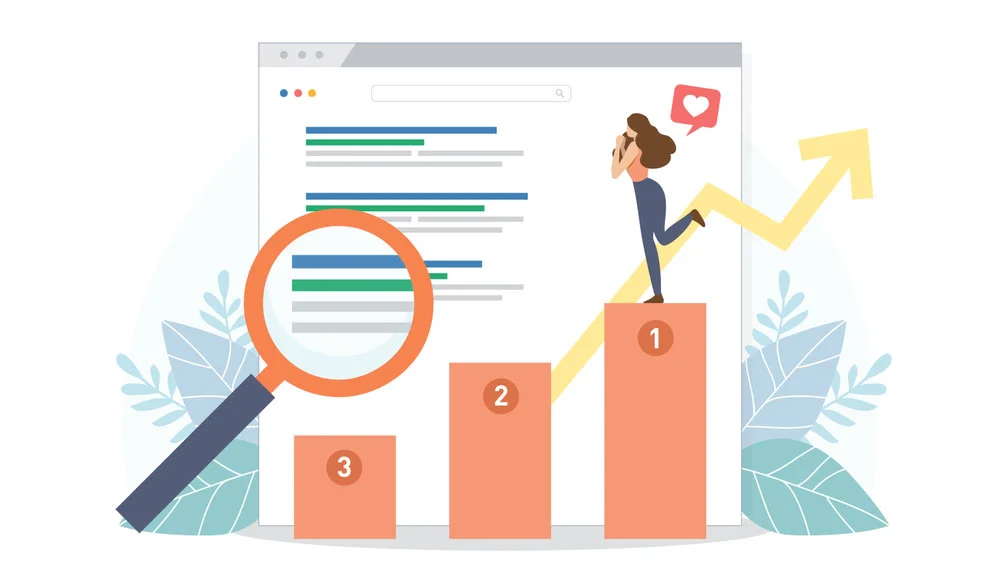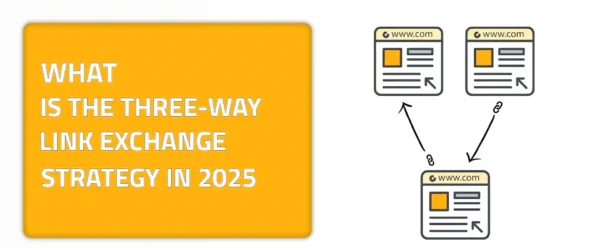Reciprocal links, also known as link exchanges, are a common practice in search engine optimization (SEO). They involve two websites agreeing to link to each other’s content in order to boost their search engine rankings. It is a strategy that helps you add strength to your website’s authority. While reciprocal links can be effective, they can also be risky if not done correctly. In this guide, we’ll cover everything you need to know about reciprocal links and how to use them safely and effectively.
Link building is an important aspect of an SEO marketing plan, and it should be a part of your strategy as well. However, reciprocal linking is a separate issue that, depending on how you approach it, may either be beneficial or harmful.
You can benefit from reciprocal links if you employ them effectively. They are dangerous if used improperly and can cause you harm. In essence, the reasons for creating those ties will largely determine the role that reciprocal links play in your plan and whether or not they add value.
What Are Reciprocal Links?
A sort of link development approach called reciprocal links, often referred to as link exchanges, occurs when two websites reach an agreement to link to the content of each other’s website. In most cases, this is done with the intention of enhancing one another’s positions inside search engine results. If two websites link to one another, the hope is that the search engines will view both websites as more authoritative and relevant, which may result in higher rankings and an increase in the amount of traffic that each website receives. However, it is essential to utilize reciprocal links in a thoughtful and strategic manner, as search engines may consider them a kind of spam if they are not utilized in the appropriate manner.
What Are the Benefits of Reciprocal Links?
Reciprocal links, also known as link exchanges, are when two websites agree to link to each other’s content. The benefits of reciprocal links are:
- Increased traffic: When two websites link to each other, they can drive traffic to each other’s sites. This can be especially beneficial for smaller sites that may not have as much traffic on their own.
- Improved search engine rankings: reciprocal links can also be beneficial for search engine optimization (SEO) purposes. When two sites link to each other, it can signal to search engines that they are both relevant and trustworthy, which can improve their rankings in search results.
- Building relationships: reciprocal linking can also help build relationships between website owners or businesses. This can lead to future collaboration opportunities or partnerships.
- Cost-effective: reciprocal linking is a cost-effective way to build links and improve SEO, especially for smaller businesses that may not have the budget for paid advertising or more expensive link-building strategies.
However, note that reciprocal linking shouldn’t be the only purpose or strategy that you focus on for your SEO strategy. Search engines are becoming increasingly sophisticated and are able to detect and penalize websites that engage in manipulative link practices, such as excessive reciprocal linking or link farms. It’s important to focus on creating high-quality content and building relationships with other websites in a natural and organic way.
Disadvantages of Reciprocal Links: Some of Its Risks
While reciprocal links can provide you with some benefits, there are also some risks and disadvantages that you should take into consideration:
- Overemphasis on links: Reciprocal linking should not be the sole focus of your SEO strategy. Search engines are becoming increasingly sophisticated and are able to detect and penalize websites that engage in manipulative link practices, such as excessive reciprocal linking or link farms. It’s important to focus on creating high-quality content and building relationships with other websites in a natural and organic way.
- Irrelevant links: If you exchange links with a website that is not relevant to your content or audience, it may not provide much value to your readers or search engines. In fact, it could even harm your search engine rankings if search engines determine that the link exchange is manipulative or irrelevant.
- Link quality: Not all links are created equal. In order to provide the most value to your readers and search engines, it’s important to exchange links with high-quality websites that have a good reputation and are relevant to your content. Links from low-quality or spammy websites can actually harm your search engine rankings and reputation.
- Time-consuming: Reciprocal linking can be time-consuming, especially if you’re trying to build relationships with other website owners and negotiate link exchanges. It’s important to weigh the benefits of reciprocal linking against the time and effort required to implement it effectively.
Overall, while reciprocal linking can provide some benefits, it’s important to approach it with caution and focus on building high-quality links and relationships in a natural and organic way.
Best Practices for Creating Reciprocal Link Agreements
It is crucial to follow best practices when arranging reciprocal link agreements in order to ensure that both parties profit from the connections and that the links are useful for search engine optimization. First things first, check to see that the links are valuable and relevant to both of the websites. You should avoid linking to websites that are of poor quality or that include spam if you want to protect the reputation of your own website.
Second, be sure that the anchor text you use appropriately describes the content of the page that you are linking to. This makes it easier for search engines to grasp the context of the link, which in turn might increase the rank of your website. Last but not least, you should routinely check your reciprocal links to ensure that they are still operational and that the pages they link to continue to be of high quality and relevant.
Monitoring and Maintaining Your Reciprocal Links
Once you have built reciprocal links with other websites, it is crucial to monitor and maintain them to ensure that they continue to help your efforts to improve your website’s search engine optimization (SEO). Check the links on a regular basis to ensure that they are still functional and that the pages that they lead to are still relevant to your content.
If you discover that a link is broken or that the page to which it leads is no longer relevant, you should contact the owner of the website and request that they either update the link or remove it. In addition, you should routinely examine your reciprocal link agreements to confirm that they continue to be advantageous for both parties and that they are in line with your overarching search engine optimization strategy.
The Way Reciprocal Links Can Actually Help Your SEO
There are several ways that reciprocal links can actually help your SEO and benefit it, as we mentioned above. The overall experience that a reader has while visiting your website is improved when you include links to other high-quality websites that are also related to the content you provide. The content of a website is of the utmost importance, and if you are able to provide your audience with material that is both unique and helpful on a regular basis, your website will rise to the top of the rankings. When you link your website to trusted domains that are ranking highly on Google, your audience will get the idea and have proof that your domain is trustworthy. Additionally, you’ll be confirming how credible your domain is with its trusted information.
There are certain questions that you should be asking yourself to ensure that the domain you’re linking yourself to is of high authority. These questions that you should keep in mind are:
- Will an external platform increase or enhance your website’s traffic?
- Does that domain offer content or information that is relevant to your niche or target audience?
- Are you partnering with a business that is considered a direct competitor? (your answer to that should be no!)
An Advise from the Wise: Reciprocal Links Are All about Adding Value
What does that mean? Well, you don’t have to do the whole reciprocal link operation if you’re only aiming to increase your website’s traffic or have the sole purpose of having a profile for link-building. This might actually lead to a Google penalty, which is something that website owners tend to avoid.
Instead, keep in mind that if you make an attempt to be useful and helpful while on-site linking, it will ultimately result in reciprocal link connections between your sites. By linking to reputable sources of information that are important to the topic at hand, one may simultaneously establish their authority and build partnerships with companies or well-known websites operating in certain specified markets.
You will be providing a great deal of value to your audience by pointing them in the direction of websites that include material, content, or information that is reputable, relevant, and helpful. You can lure in your audience and bring them further into the web of your brand or business by earning their trust and becoming transparent with them. We know that this is something you might be interested in implementing.
Final Thoughts
Link exchange is one of the top methods that could help you increase your domain authority and your website’s traffic. That is why we offer you our linkexchange.AI free services of exchanging links and connecting with different networks, platforms, or domains that could help you familiarize yourself with the whole link building strategy. Sign up now and take your website and business to the next level!










